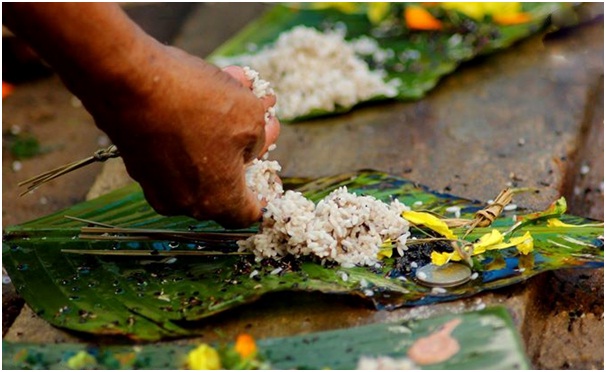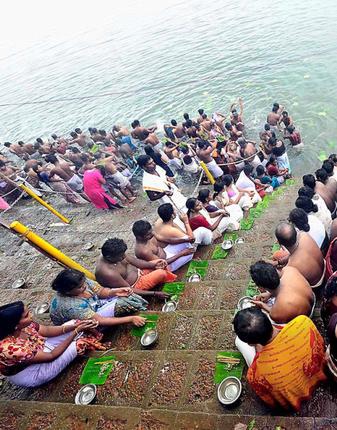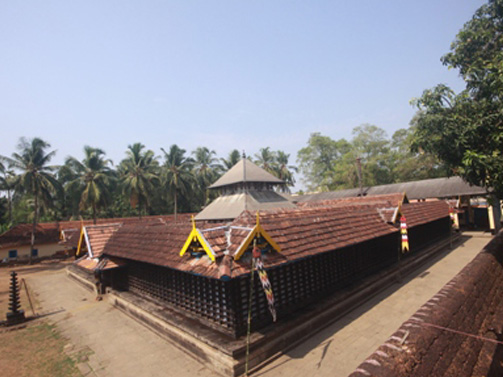Karkidaka Vavubali: An offering to liberate the souls of departed dear ones
The month of Karkidakam (mid July to mid August) holds special significance for the Hindus of Kerala. This month is meant for rejuvenating the body and the mind. Think about the Ayurvedic treatments. It is also the time of the year when temples organize Gajapuja (elephant worship) and Aanayoottu (feed the elephant).

A person offers Bali on a banana leaf to his departed ancestors. Cooked rice, some kinds of grass, herbs and sesame are used to perform this ritual.
Karkidakam also hosts Vavubali. This is a ritual performed to liberate the souls of one’s ancestors from the shackles of worldly bondage. This ritual is observed on Amavasi or Vavu (no moon day) in Karkidakam. On this day Hindus gather on beaches and riverbanks to offer Bali (sacrifice) to their departed dear ones. Some perform Bali every year on the day their dear one died. Note that to determine the dates, Malayalis use the Malayalam calendar. However, performing this ritualistic homage on Karkidaka Vavu is even more auspicious.
Items used for the pooja

Each year thousands of people offer Bali to their parents and grandparents on Karkidakavavu on the banks of river Periyar.
The following items are used for performing the pooja. Cooked rice, water, darbha (a kind of grass), sesame, cheroola (a kind of herb) and pavithram (a ring made of sacred grass). The ring is worn around the finger and other items are placed on a banana leaf before commencing the pooja. Priests will help people to perform the ritual. Men, women and children can all offer Bali to their parents, grandparents and elders. While performing this ritual, men wear only a dhoti. After performing the pooja, the offerings are immersed in the waters of the river or the sea.

Thousands of people offer Vavubali on the banks of Nila River near the Nava Mukunda Temple at Thirunavaya. This ritual is performed to appease one’s ancestors and liberate their souls.
For Hindus, the ultimate goal of life is liberation from the cycles of birth and death. When someone dies their children are expected to perform certain rituals to liberate their soul. In Malayalam these rituals are called Shesha Kriya (rituals after death). The Bali performed on Karkidaka Vavu is the most auspicious.
Formal procedures
The person offering Bali should eat rice or other foods made of rice only once the day before the ritual. Rice is the staple food of Malayalis and abstaining from rice is regarded as a kind of sacrifice. While performing the ritual, the person will be guided by a priest. Taking a bath in the holy water before and after performing the ritual is required.
Places where the pooja is performed
The banks of Nila River at Thirunavaya, Malappuram district, river Periyar at Aluva, Shangumughom Beach in Thiruvananthapuram, Sri Parasurama Temple in Thiruvallam and Aruvikkara in Thiruvananthapuram are important places to perform the ritual. Those who can’t make it to these places may perform the ritual on the banks of a river or pond in their neighborhood.